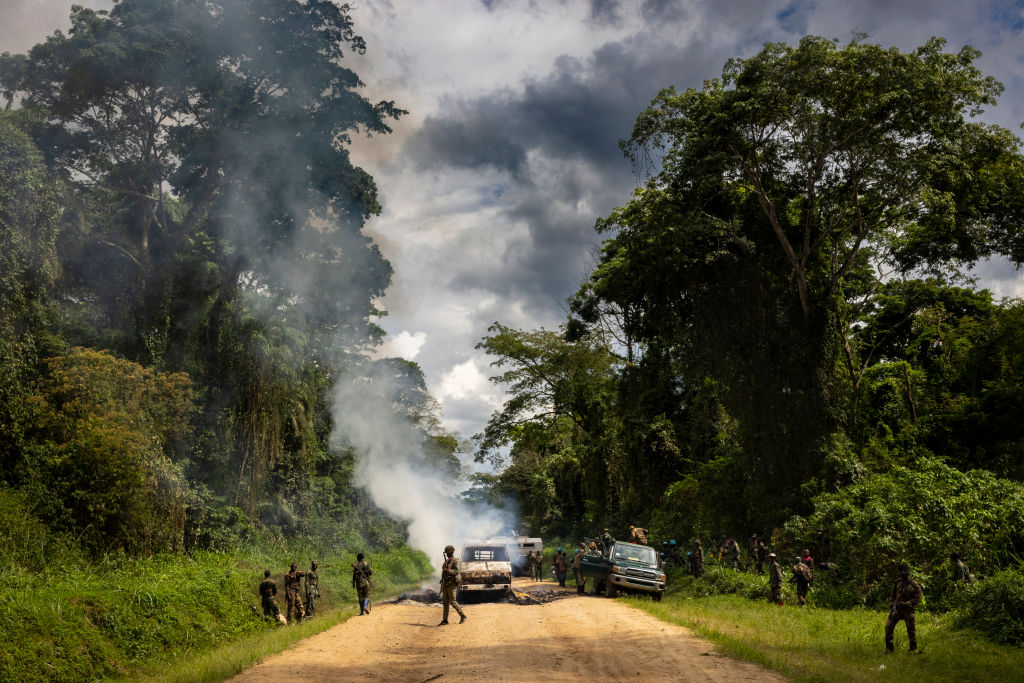ADF STAFF
For seven years, the Islamic State Central Africa Province (ISCAP) has relied on a network of Islamic State group affiliates to fund much of its terror campaign across the eastern Democratic Republic of the Congo and Uganda. However, recent events suggest that network might not be as reliable as it once was.
Two events appear to be putting ISCAP’s finances of shaky ground: the recent collapse of IS operations in Mozambique and al-Shabaab’s repeated losses in Somalia. Like similar groups, ISCAP also extorts money from local residents in the DRC’s North Kivu and Ituri provinces, where it is among dozens of organizations seeking the upper hand.
Although ISCAP’s finances are overseen through an IS office in Somalia, affiliate offices in Egypt, Libya and Sudan shut down in recent years, reducing contributions from those areas.
Before the Uganda-based Allied Democratic Forces declared its allegiance to IS in 2017, IS had funded affiliates directly from its operations in Iraq and Syria. That had all changed by the time the financially crippled Allied Democratic Forces renamed itself ISCAP and joined IS.
By 2017, IS had been largely stripped of its territory in Iraq and Syria and was no longer reliable as a single source of cash. Instead, it encouraged ISCAP to seek funding from other IS affiliates in Africa, such as al-Shabaab in Somalia and South African criminal networks.
“Much of the money flowing to ISCAP has been sent to Uganda, where ISCAP’s networks receive the funds to use locally or smuggle across the border into Congo,” investigators with the Bridgeway Foundation wrote in a recent analysis of ISCAP financing.
The system enabled ISCAP to grow rapidly in the DRC’s North Kivu province, where the group has become notorious for suicide bombings and murdering civilians who cooperate with peacekeepers or government troops.
The funding network relies on money transfers to ISCAP through a hawala money transfer system that allows deposits at one end of a financial chain and withdrawals at the other. In Uganda, recipients provided photo identification to receive funds. Elsewhere, recipients could confirm the receipt of money through their phones. Both kinds of transactions left an electronic paper trail that could reveal the players involved, according to the Bridgeway Foundation’s interviews with former ISCAP members.
Since 2021, the DRC and Uganda have worked together under Operation Shuja to confront ISCAP through a series of bombings and ground assaults. That operation has included a commitment to share intelligence about ISCAP.
With the United Nations’ MONUSCO peacekeeping mission in the DRC set to end in December 2024, observers expect ISCAP activity to accelerate over the next 12 months. According to Bridgeway Foundation analysts, regional cooperation across East and Southern Africa will be vital in disrupting ISCAP funding and, ultimately, in dismantling the group.
“Such regional cooperation should prioritize following and shutting down ISCAP’s financial flows, as well as disrupting recruitment cells,” Bridgeway Foundation analyst Caleb Weiss wrote recently for the Hoover Institution.
Economic development in communities where ISCAP recruits also will be vital to undercutting its capacity for mayhem.
“At the same time, providing support for those who surrender, particularly to those who were tricked or forced into ISCAP, is vital to depleting its ranks,” Weiss wrote.

